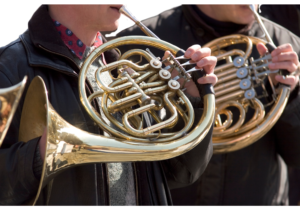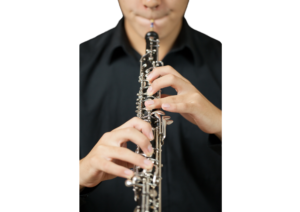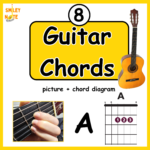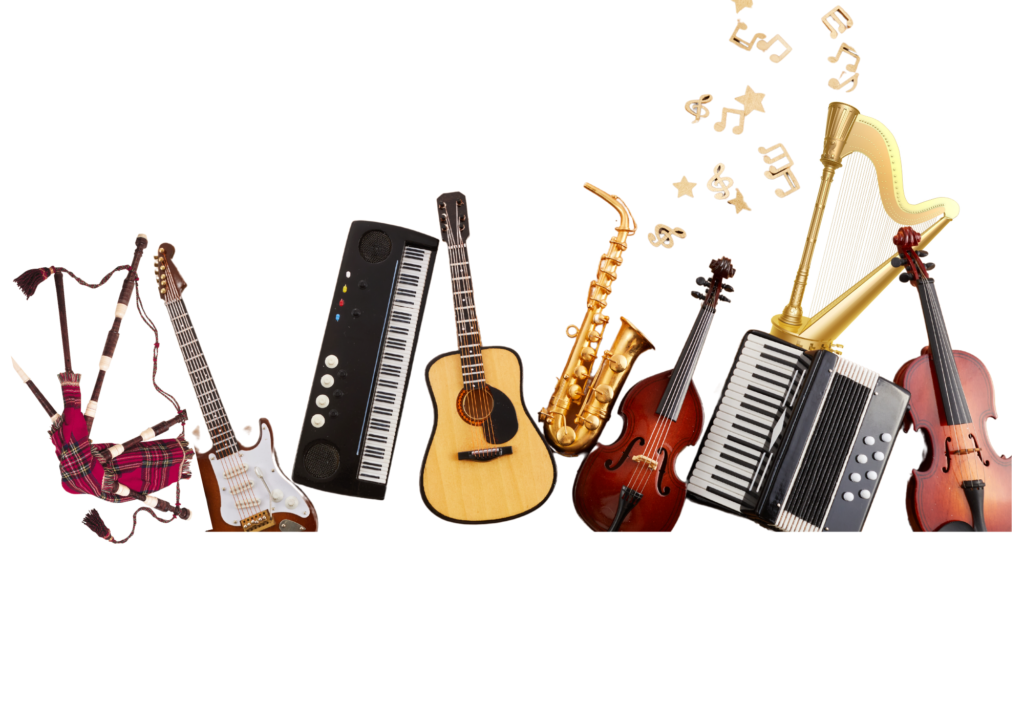As a music teacher, I’ve often been asked, “What’s the hardest instrument to learn?” It’s a fascinating question because the answer depends on a mix of skill, dedication, and even physical ability. Learning a musical instrument is a rewarding journey, but some are undeniably more challenging than others. Let’s dive into the hardest instruments to learn, why they’re so tricky, and the benefits of taking on the challenge.
What Makes an Instrument Hard to Learn?
Some instruments are just trickier than others, and here’s why:
⭐ Physical Challenges: Instruments like the violin or trumpet need precise finger or breath control.
⭐ Complex Techniques: Instruments like the piano or harp require multitasking and mastering several skills at once.
⭐Coordination: Drums demand you to use your hands and feet independently (trust me, it’s harder than it looks!).
⭐Music Theory Knowledge: Some instruments, like the piano, require you to dive deeper into reading and understanding music.
Now that we know what makes some instruments harder, let’s dive into my top picks for the most challenging ones – and why they’re worth learning.
Top 10 Hardest Instruments to Learn
1. Violin

The violin often takes the crown for being one of the hardest instruments to learn, and I’ve seen it firsthand in my students.
Why It’s Difficult
- No Frets: Unlike the guitar, there are no guides for where to place your fingers – you just have to learn by feel (and practice!).
- Bow Control: Producing a smooth sound with the bow takes time and careful technique.
- Posture: Holding the violin correctly while playing can be tiring until you get used to it.
Benefits of Learning the Violin
- Enhances ear training and pitch recognition.
- Improves hand-eye coordination and fine motor skills.
- Offers versatility to play in orchestras, solo, or in smaller ensembles.
2. Piano

The piano seems beginner-friendly, but there’s a lot more to it than meets the eye.
Why It’s Difficult
- Using Both Hands: You have to coordinate your left and right hands to play different parts simultaneously.
- Reading Two Staves: Piano music requires you to read both treble and bass clefs at the same time.
- Complex Pieces: As you progress, pieces become more intricate, with dynamics, phrasing, and pedali
Benefits of Learning the Piano
- Builds a strong foundation in music theory.
- Improves multitasking and concentration.
- Offers a wide repertoire ranging from classical to contemporary.
3. French Horn

Ah, the French horn—a gorgeous instrument but not for the faint-hearted!
Why It’s Difficult
- Small Mouthpiece: It requires precise lip control (embouchure) to produce the correct notes.
- Pitch Accuracy: The notes are close together, so it’s easy to miss the right one.
- Breath Control: You need strong lungs to sustain those long, beautiful notes.
Benefits of Learning the French Horn
- Develops excellent breath control and stamina.
- Improves listening skills for intonation and pitch.
- Provides opportunities to play in orchestras and brass ensembles.
4. Drums

Drums are all about rhythm and energy, but don’t underestimate their difficulty.
Why It’s Difficult
- Coordination: You’ll be using all four limbs to create rhythms, and they all have to work independently.
- Timing: Drummers keep the beat for the entire group, so there’s no room for error.
- Endurance: Playing for long sessions can be physically demanding.
Benefits of Learning Drums
- Enhances rhythm and timing skills.
- Boosts physical stamina and coordination.
- Provides a great outlet for creativity and stress relief.
5. Oboe

The oboe is a beautiful instrument with a unique, haunting sound, but it’s definitely not easy.
Why It’s Difficult
- Breath Control: The double-reed mouthpiece makes controlling airflow tricky.
- Reed Maintenance: Many oboists make their own reeds, which adds another layer of complexity.
- Pitch Stability: Staying in tune can be challenging.
Benefits of Learning the Oboe
- Develops fine motor skills and lung capacity.
- Provides opportunities for advanced orchestral roles.
- Enhances understanding of woodwind techniques.
6. Harp

The harp is as beautiful as it is complex.
Why It’s Difficult
- Pedal Work: You need to coordinate your feet to adjust sharps and flats while playing.
- Finger Technique: The plucking motion requires strength and precision.
- Size: It’s a large instrument, which can make it intimidating for beginners.
Benefits of Learning the Harp
- Produces a heavenly, unique sound.
- Enhances multitasking skills.
- Offers opportunities for solo performances and ensembles.
7. Bagpipes

The bagpipes are famous for their distinctive sound, but they’re also one of the hardest to master.
Why It’s Difficult
- Breath Control: You need to maintain constant air pressure in the bag.
- Coordination: Simultaneously squeezing the bag and playing the chanter takes practice.
- Physical Stamina: Playing for extended periods can be exhausting.
Benefits of Learning the Bagpipes
- A unique instrument that sets you apart.
- Improves lung capacity and stamina.
- Connects you to a rich cultural tradition.
8. Classical Guitar

The classical guitar is a versatile and rewarding instrument, but it comes with challenges.
Why It’s Difficult
- Finger Independence: Fingerpicking requires each finger to move independently.
- Technique: You need precise control to produce a clear sound.
- Repertoire: Classical guitar pieces often have complex arrangements.
Benefits of Learning the Classical Guitar
- Enhances finger strength and dexterity.
- Builds a strong foundation in music theory.
- Allows for a wide variety of musical styles.

9. Flute

The flute is elegant but deceptively tricky.
Why It’s Difficult
- Breath Control: You need to produce a steady airstream to hit the right notes.
- Finger Placement: Playing fast passages requires agility and precision.
- Embouchure: Shaping your lips correctly takes practice.
Benefits of Learning the Flute
- Develops lung capacity and control.
- Offers opportunities in orchestras and solo performances.
- Easy to carry and transport.
10. Accordion

The accordion may look fun, but it’s a real challenge to master.
Why It’s Difficult
- Bellows Control: You need to control the air pressure for dynamics and sustain.
- Coordination: Playing the keyboard with one hand and buttons with the other requires multitasking.
- Physical Stamina: Supporting the instrument while playing can be tiring.
Benefits of Learning the Accordion
- Produces a rich, full sound.
- Great for folk and traditional music.
- Improves coordination and finger strength.

👉 Beginner Ukulele for Kids – Starter Lesson Pack – Printable PDF Tabs + Demo Video
FAQs About Hard Instruments
⭐ What Is the #1 Hardest Instrument to Learn?
Many agree that the violin is the hardest because of its precision, lack of frets, and the bowing technique required.
⭐ What Is the Easiest Instrument to Play?
The ukulele is often considered one of the easiest instruments to learn. It has just four strings, simple chords, and is perfect for beginners of all ages.
⭐ Is Flute or French Horn Harder?
The French horn is generally harder due to its complex embouchure and pitch accuracy requirements. The flute, while challenging, has a more straightforward design and technique.
⭐ What Is the Most Physically Demanding Instrument to Play?
Drums and bagpipes are among the most physically demanding instruments due to the stamina and coordination required. Brass instruments like the tuba can also be challenging due to their size and breath requirements.
⭐ What Is the Hardest Instrument to Play in Band?
The French horn is often considered the hardest instrument in a band due to its pitch sensitivity and the skill needed to play it accurately.
READ NEXT!
👉 Top 10 Easy to Learn Musical Instruments: Perfect for Beginners

About the Author
I’m Veronika, a music educator based in Australia, working with children, beginners, and families through piano, guitar, ukulele, and flute lessons. I specialise in making music simple, enjoyable, and pressure-free – especially for beginners who may feel overwhelmed by traditional lessons.

Conclusion about the hard instruments to play
As a music teacher, I’ve seen students thrive when they’re excited about their instrument – even the hardest ones. If you’re ready to take on a challenge, choose the instrument that sparks your passion. Remember, the journey is just as rewarding as the destination.
Let’s make music together! 🎶



